| Interview Colin Hastings | PHUKET BASED Brit Stuart Watson spent his entire working life managing, promoting and mixing with some of the biggest names in the music business. Now retired, he recalls the best and the worst of these legendary performers and how the music scene has changed over the past five decades After a lifetime of travelling the globe, how come you’ve decided to spend your retirement here in Thailand? I first visited Thailand in 1975 and immediately fell in love with its history, culture, people and food. Of the many places I have visited on all six continents, during my life Thailand came out on top. I earmarked it as a potential place for retirement very early on. I love living here. What first sparked your interest in music? My parents were great music lovers and there were movie soundtracks, original cast albums and early classics by the likes of Nat King Cole, Vera Lynn and Al Jolson all over the place. But it was rock ‘n’ roll, Radio Luxembourg and pirate radio that really turned on the switch. Music was implanted in my soul at an early age. No music no life. How did you get involved in the music business? Having run local tennis club events in the 60’s and attended every one of the 60’s music festivals (including Stones + Blind Faith in Hyde Park and Dylan on the Isle of Wight) I volunteered for the social secretary’s job at uni, booking bands through a guy at College Entertainment. We became good friends and when he left to join EMI to set up a regional promotions department, he offered me a job. It was a ‘no brainer’ and I immediately rejected the opportunity of becoming assistant biochemist at York Hospital. That was my lucky break. |
What was your actual involvement in the music industry?
At EMI I looked after the promotion of touring acts working closely with the likes of T.Rex, Wings, Queen, Deep Purple, Lynyrd Skynyrd, The Eagles, Pink Floyd etc. In those early 70’s days the same person (me) handled interviews, local radio, print, retail and venue promotion and, as part of the tour entourage, I got to know the artists well. I moved on to run Harvest Records ( Pink Floyd, Kevin Ayers, ELO, Roy Wood) in 1974, joining Universal/ MCA as marketing manager in ’76 and becoming MD of MCA UK in 1981. As MD I was involved in all aspects of the business and even signed a few acts (Nik Kershaw, The Fixx, –one million US sales–Musical Youth, Kim Wilde). I took over as Head of International in 1984 and spent the rest of my career traveling and overseeing company operations in multiple markets before starting my own business in Asia in 1986. At Singapore based Swat Enterprises we brokered licensing deals for Indie record companies in US/UK and coordinated their marketing and promotion activities throughout the region selling over 10m records in just three years. Amongst the acts we represented were Britney Spears, Backstreet Boys, Justin Timberlake and R Kelly.
You grew up in the 50s and 60s – was it the golden period of music that your peers always claim?
Definitely … there was so much talent around. Artists toured to sell long playing records and the fans
knew every track. Money was made from records not ticket sales. There were so many big British acts in the 60’s–Fleetwood Mac, The Who, Traffic, Moody Blues, Jethro Tull, Joe Cocker, Taste to name but a few, and at the festivals you could watch them all on the same bill over 2-3 days. As far as British bands are concerned. I would only put Coldplay in the international superstar category today. Muse and War on Drugs should be up there but sadly they are not recognised
globally.
How does the live music scene in terms of concerts, oddball venues and event management back then compare to today?
It is totally different. Many of the influential club venues have disappeared and nothing credible has replaced them. Records are now released because an artist is touring. It is product endorsements, ticket and merchandise sales that now
generate the lion’s share of revenues. In the current climate a different degree of expertise is involved in the digital space and viral marketing contributes more than good record reviews and airplay to driving artist popularity.
Which country was the most influential in building the international appeal of pop music, and why?
In terms of rock music definitely the UK. Whilst its blues roots were imported from America, it took UK artists to popularise these roots. In the UK early production skills created the repertoire that spearheaded the 1964 ‘Brit invasion’ of America which in turn laid the groundwork for American pop which became more influential in future years due to sheer scale of the country. UK acts always took more time out to exploit world markets whereas US based artists preferred to spend more time at home. That said, we came up with some innovative ways to market Backstreet Boys and Britney Spears within limited time space available.
At EMI I looked after the promotion of touring acts working closely with the likes of T.Rex, Wings, Queen, Deep Purple, Lynyrd Skynyrd, The Eagles, Pink Floyd etc. In those early 70’s days the same person (me) handled interviews, local radio, print, retail and venue promotion and, as part of the tour entourage, I got to know the artists well. I moved on to run Harvest Records ( Pink Floyd, Kevin Ayers, ELO, Roy Wood) in 1974, joining Universal/ MCA as marketing manager in ’76 and becoming MD of MCA UK in 1981. As MD I was involved in all aspects of the business and even signed a few acts (Nik Kershaw, The Fixx, –one million US sales–Musical Youth, Kim Wilde). I took over as Head of International in 1984 and spent the rest of my career traveling and overseeing company operations in multiple markets before starting my own business in Asia in 1986. At Singapore based Swat Enterprises we brokered licensing deals for Indie record companies in US/UK and coordinated their marketing and promotion activities throughout the region selling over 10m records in just three years. Amongst the acts we represented were Britney Spears, Backstreet Boys, Justin Timberlake and R Kelly.
You grew up in the 50s and 60s – was it the golden period of music that your peers always claim?
Definitely … there was so much talent around. Artists toured to sell long playing records and the fans
knew every track. Money was made from records not ticket sales. There were so many big British acts in the 60’s–Fleetwood Mac, The Who, Traffic, Moody Blues, Jethro Tull, Joe Cocker, Taste to name but a few, and at the festivals you could watch them all on the same bill over 2-3 days. As far as British bands are concerned. I would only put Coldplay in the international superstar category today. Muse and War on Drugs should be up there but sadly they are not recognised
globally.
How does the live music scene in terms of concerts, oddball venues and event management back then compare to today?
It is totally different. Many of the influential club venues have disappeared and nothing credible has replaced them. Records are now released because an artist is touring. It is product endorsements, ticket and merchandise sales that now
generate the lion’s share of revenues. In the current climate a different degree of expertise is involved in the digital space and viral marketing contributes more than good record reviews and airplay to driving artist popularity.
Which country was the most influential in building the international appeal of pop music, and why?
In terms of rock music definitely the UK. Whilst its blues roots were imported from America, it took UK artists to popularise these roots. In the UK early production skills created the repertoire that spearheaded the 1964 ‘Brit invasion’ of America which in turn laid the groundwork for American pop which became more influential in future years due to sheer scale of the country. UK acts always took more time out to exploit world markets whereas US based artists preferred to spend more time at home. That said, we came up with some innovative ways to market Backstreet Boys and Britney Spears within limited time space available.
Could a band like The Beatles or singer Cliff Richard make it (without professional marketing teams and financial backers) in today’s music business?
I am a great believer in uniqueness and natural talent so I would like to think so, yes. The problem today is increased narrowcasting which tends to pigeon hole artists by genre. Radio has lost its impact and, without it, artists have to tour. Touring without hits tends to be a long expensive business and in many countries there is a lack of small venues. This makes it very hard to break through. Streaming usually popularised one song at a time so it takes much longer to achieve superstar status. Unless you are a Lady Gaga or an Ed Sheeran, churning out single after single, it is more difficult to build a concert-going fan base these days
I am a great believer in uniqueness and natural talent so I would like to think so, yes. The problem today is increased narrowcasting which tends to pigeon hole artists by genre. Radio has lost its impact and, without it, artists have to tour. Touring without hits tends to be a long expensive business and in many countries there is a lack of small venues. This makes it very hard to break through. Streaming usually popularised one song at a time so it takes much longer to achieve superstar status. Unless you are a Lady Gaga or an Ed Sheeran, churning out single after single, it is more difficult to build a concert-going fan base these days
| Please name your all-time favorites bands and singers, and why are they so great? Led Zeppelin and The Who–the best rock bands of all time. I saw them over ten times each and they were the finest by far. Queen–superb musicianship with Freddie Mercury the best frontman and vocalist of all time. “I don’t want to be a star”, he told me, “ I want to be a legend”. He is. Our first UK based Asian legend. “Unforgettable”. Nat King Cole – I loved him from the age of five, thanks to my dad. Also, Al Green. Neil Young, Pink Floyd and Leonard Cohen – amongst my all time favourites. And the most genuinely talented performers? Led Zeppelin, Pink Floyd, Michael Jackson, Bruce Springsteen, Tony Bennett, Yes, and Stevie Wonder. Least talented and overrated? Sex Pistols Please, a few words on record producers, arrangers, composers, conductors etc – who was the best? In terms of record producers, Chris Thomas, Glyn Johns, George Martin, and Mutt Lange are up there amongst the best. Arranger–Burt Bacharach. Mickie Most delivered a wealth of pop hits and Brian Eno is a maestro. They are mostly Brits. Most difficult and rudest performers? And the nicest ? Rudest–Whitney Houston Most Impressive–Freddie Mercury. Nicest–Kim Wilde, Glenn Frey (Eagles) |
Your career highlights
• When we showcased Britney Spears in Singapore in 1998 on her first ever media live vocal performance.
• Introducing Michael Grant (Musical Youth) to Michael Jackson at the annual UK industry awards event when Musical Youth were No.1 with Pass the Dutchie. We stole all the headlines.
• Being the first person in the worldto hear Bohemian Rhapsody when Freddie Mercury played it to me on his apartment piano.
• Hosting an East/West music conference in East Berlin which ended on the day the Berlin Wall fell, meaning I was one of the first through Checkpoint Charlie.
• The opening of MCA/Victor, our Japanese joint venture company in Tokyo, after months of near impossible negotiation.
• The Tokyo Dome concerts by Backstreet Boys and Britney Spears in 2002/3 when the whole of Japan’s music business seemed to drop by and offer their congratulations on our artist’s success. BSB alone sold over three million in Japan.
• Watching Led Zeppelin for the first time at the Bath festival in 1968.
• Selling SWAT in 1999 but inserting a ‘buy back’ option if the company ever sold to a third party - which it did.
• The record breaking ‘Around the world in 100 hours’ promotion tour which resulted in the Backstreet Boys visiting and performing on all six continents, helping the album explode. The branded jet was a coup
Career downers
• Hearing about Lynyrd Skynyrd’s fatal plane crash and the death of some special friends and being unable to cancel the ‘Putting out flags’ radio campaign for the album released that same weekend.
• Landing in Australia on September 11, 2001, meeting Britney Spears off a flight from *NSYNC and having to debrief her about the Twin Towers disaster, which resulted in the cancellation of her ‘Three Continents’ album promotion.
If you could go back in time for a day or so, when and where would you choose to be?
At the first ever Britney performance (in Singapore), where I was the proudest man on earth. What our team had accomplished for Backstreet Boys was nothing short of a miracle and when (after her performance) we told the cream of Asia’s media that, with their help, we were going to do the same again for Britney, she got a standing ovation. I was in tears with the emotion of it all. Six months later ‘Baby one more time’ was a worldwide No.1.
How does today’s pop music compare with the 60s/70s/80s? and do you like it?
In general, it is less natural and more manufactured. In many cases it is driven by producers rather than artists. The synthesiser music of the 80’s was similar. The raw talent of the 60’s and 70’swill never be matched. On the few occasions I visit the UK I hear the occasional new song on radio which Iimmediately download, but there are not many I rate these days. Mumford and Sons, War on Drugs and Ellie Goulding were amongst the most recent. My best successes have been in pop–Kim Wilde, Nik Kershaw, Tiffany, Indecent Obsession, Britney, BSB, Nsync etc . The industry just doesn’t make records and develop artists like it used to.
• When we showcased Britney Spears in Singapore in 1998 on her first ever media live vocal performance.
• Introducing Michael Grant (Musical Youth) to Michael Jackson at the annual UK industry awards event when Musical Youth were No.1 with Pass the Dutchie. We stole all the headlines.
• Being the first person in the worldto hear Bohemian Rhapsody when Freddie Mercury played it to me on his apartment piano.
• Hosting an East/West music conference in East Berlin which ended on the day the Berlin Wall fell, meaning I was one of the first through Checkpoint Charlie.
• The opening of MCA/Victor, our Japanese joint venture company in Tokyo, after months of near impossible negotiation.
• The Tokyo Dome concerts by Backstreet Boys and Britney Spears in 2002/3 when the whole of Japan’s music business seemed to drop by and offer their congratulations on our artist’s success. BSB alone sold over three million in Japan.
• Watching Led Zeppelin for the first time at the Bath festival in 1968.
• Selling SWAT in 1999 but inserting a ‘buy back’ option if the company ever sold to a third party - which it did.
• The record breaking ‘Around the world in 100 hours’ promotion tour which resulted in the Backstreet Boys visiting and performing on all six continents, helping the album explode. The branded jet was a coup
Career downers
• Hearing about Lynyrd Skynyrd’s fatal plane crash and the death of some special friends and being unable to cancel the ‘Putting out flags’ radio campaign for the album released that same weekend.
• Landing in Australia on September 11, 2001, meeting Britney Spears off a flight from *NSYNC and having to debrief her about the Twin Towers disaster, which resulted in the cancellation of her ‘Three Continents’ album promotion.
If you could go back in time for a day or so, when and where would you choose to be?
At the first ever Britney performance (in Singapore), where I was the proudest man on earth. What our team had accomplished for Backstreet Boys was nothing short of a miracle and when (after her performance) we told the cream of Asia’s media that, with their help, we were going to do the same again for Britney, she got a standing ovation. I was in tears with the emotion of it all. Six months later ‘Baby one more time’ was a worldwide No.1.
How does today’s pop music compare with the 60s/70s/80s? and do you like it?
In general, it is less natural and more manufactured. In many cases it is driven by producers rather than artists. The synthesiser music of the 80’s was similar. The raw talent of the 60’s and 70’swill never be matched. On the few occasions I visit the UK I hear the occasional new song on radio which Iimmediately download, but there are not many I rate these days. Mumford and Sons, War on Drugs and Ellie Goulding were amongst the most recent. My best successes have been in pop–Kim Wilde, Nik Kershaw, Tiffany, Indecent Obsession, Britney, BSB, Nsync etc . The industry just doesn’t make records and develop artists like it used to.
| Has the music business lost some of its spontaneity? You could argue that the Internet and social media have helped accentuate spontaneity, but I would say that new talent has lost spontaneity.’Beingprofessional’ has resulted in signing and developing fewer artists. Music is about passion. If you believe in something good enough it will happen. Which of today’s performers do you regard highly? Adele. What’s the future of music–are we running out of ideas? We will never run out of ideas, but aworrying factor is that music’s lack of earning power from an artist perspective is diluting the birth of new artist careers. Music has lost much of its cool factor and ‘would be’ new artists are choosing a career in tech where they believe they can earn more money. What first brought you to asia? Optimism, excitement, lifestyle and the fact that industry innovators here are able to take your ideas and make them better. I also love having an opportunity to deal with and resolve problems before the rest of the world awakes, creating opportunities ahead of the game. |
Any thoughts on Thailand’s music scene?
It very hard for Thai music to cross borders despite its increased sophistication and quality. That said, there are some very talented musicians and writers here. Bakery Records in particular was a trailblazer in this regard.
Any family connections in Thailand?
My son Chris made his first trip to Asia in 1986 when he was one year old and with Bangkok based ‘Fore Management’ (after a few years in Singapore) he now has a successful golf event business. I am very happy that he chose to settle here and see him regularly.
How’s life in Phuket–and how do you keep yourself busy?
I have written three books in the last six years and devour at least two a week. I travel regularly within Thailand, go island hopping, cook, drink and eat far too much. I have re-discovered the simple life that I enjoyed so much as a youngster. As an ageing hippy yet to cut his hair, I love day to day life in shorts and sandals and am benefiting from a culture where strong family bonding ensures access to all necessary home comforts. I probably spend more time with my Thai friends than I do with the expats.
Has knowing all these massive personalities ever had an effect on your own? Are they all (or some) as crazy as they seem?
During my time as MD of MCA (31- 34) I was at times as big headed and arrogant as some of them. This was one of the factors that cost me my marriage. Thankfully I can look back on it now and realise that being under such pressure to deliver can make you lose control of your behavior and influence your character. One should never allow this to happen and it was a lesson learned. Very few of the ‘personalities’ are ‘crazy.’ The media accounts of some of them are laughable and to a large extent should be ignored. My approach in working with them all was to treat them in the same way as I do my mates and family and avoid kow -towing. There are too men ‘yes men + women’ in the music business. At all times I shot from the hip and always told it like it was. In this way you gain their trust and respect which triggers the best possible working relationship.
Looking back, if you only had a chance to meet three persons out of all the people you’ve met, who would you choose?
Freddie Mercury, Tom Petty and Glenn Frey all of whom were dear friends. RIP all.
Is there anyone you would’ve rather not met?
Whitney Houston. I should explain. We heard rumours that her husband (MCA act Bobby Brown) was about to cancel his sold out Coca Colasponsored Euro tour, so I flew to Tokyo where he was performing to try and persuade him to reconsider. Backstage after his show there, I began my pre-prepared pitch. The language from his wife as she had me bodily removed from the dressing room was unprintable. The tour was cancelled and, despite our warning, Bobby never sold another record in Europe.
What was the most cringe-worthy moment you witnessed during your career?
A head of UK A+R telling an artist that her new song was a smash hit when I thought it was a pile of s...t.
It very hard for Thai music to cross borders despite its increased sophistication and quality. That said, there are some very talented musicians and writers here. Bakery Records in particular was a trailblazer in this regard.
Any family connections in Thailand?
My son Chris made his first trip to Asia in 1986 when he was one year old and with Bangkok based ‘Fore Management’ (after a few years in Singapore) he now has a successful golf event business. I am very happy that he chose to settle here and see him regularly.
How’s life in Phuket–and how do you keep yourself busy?
I have written three books in the last six years and devour at least two a week. I travel regularly within Thailand, go island hopping, cook, drink and eat far too much. I have re-discovered the simple life that I enjoyed so much as a youngster. As an ageing hippy yet to cut his hair, I love day to day life in shorts and sandals and am benefiting from a culture where strong family bonding ensures access to all necessary home comforts. I probably spend more time with my Thai friends than I do with the expats.
Has knowing all these massive personalities ever had an effect on your own? Are they all (or some) as crazy as they seem?
During my time as MD of MCA (31- 34) I was at times as big headed and arrogant as some of them. This was one of the factors that cost me my marriage. Thankfully I can look back on it now and realise that being under such pressure to deliver can make you lose control of your behavior and influence your character. One should never allow this to happen and it was a lesson learned. Very few of the ‘personalities’ are ‘crazy.’ The media accounts of some of them are laughable and to a large extent should be ignored. My approach in working with them all was to treat them in the same way as I do my mates and family and avoid kow -towing. There are too men ‘yes men + women’ in the music business. At all times I shot from the hip and always told it like it was. In this way you gain their trust and respect which triggers the best possible working relationship.
Looking back, if you only had a chance to meet three persons out of all the people you’ve met, who would you choose?
Freddie Mercury, Tom Petty and Glenn Frey all of whom were dear friends. RIP all.
Is there anyone you would’ve rather not met?
Whitney Houston. I should explain. We heard rumours that her husband (MCA act Bobby Brown) was about to cancel his sold out Coca Colasponsored Euro tour, so I flew to Tokyo where he was performing to try and persuade him to reconsider. Backstage after his show there, I began my pre-prepared pitch. The language from his wife as she had me bodily removed from the dressing room was unprintable. The tour was cancelled and, despite our warning, Bobby never sold another record in Europe.
What was the most cringe-worthy moment you witnessed during your career?
A head of UK A+R telling an artist that her new song was a smash hit when I thought it was a pile of s...t.
| Stuart’s book ‘Every Picture HasIts Story’ is available for US$30 at www.swatbooks.com. (Readers of The BigChilli can purchase the book for 700 baht, including postage, by sending an email to info @swatenterprises.com and marking it “BigChilli Special”). |

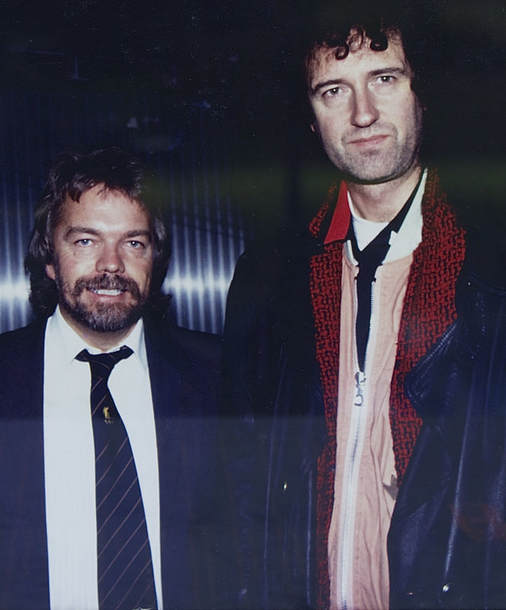
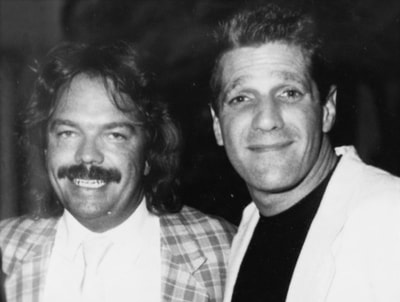
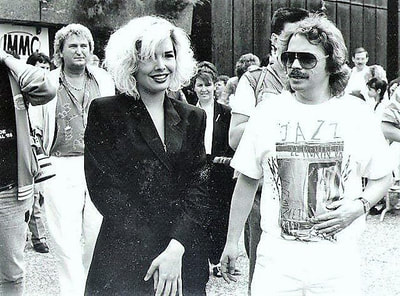
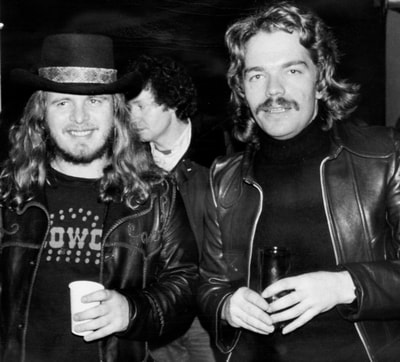
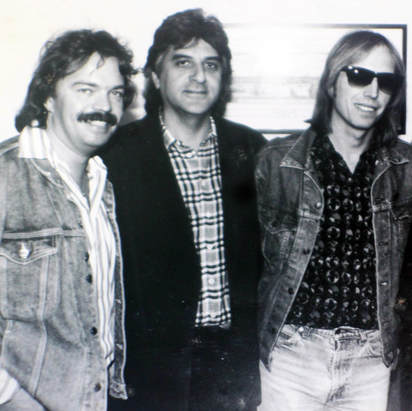
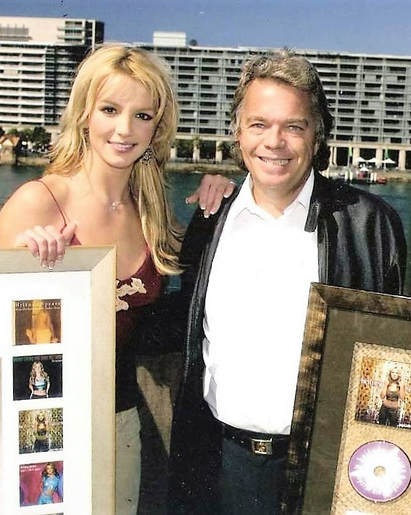
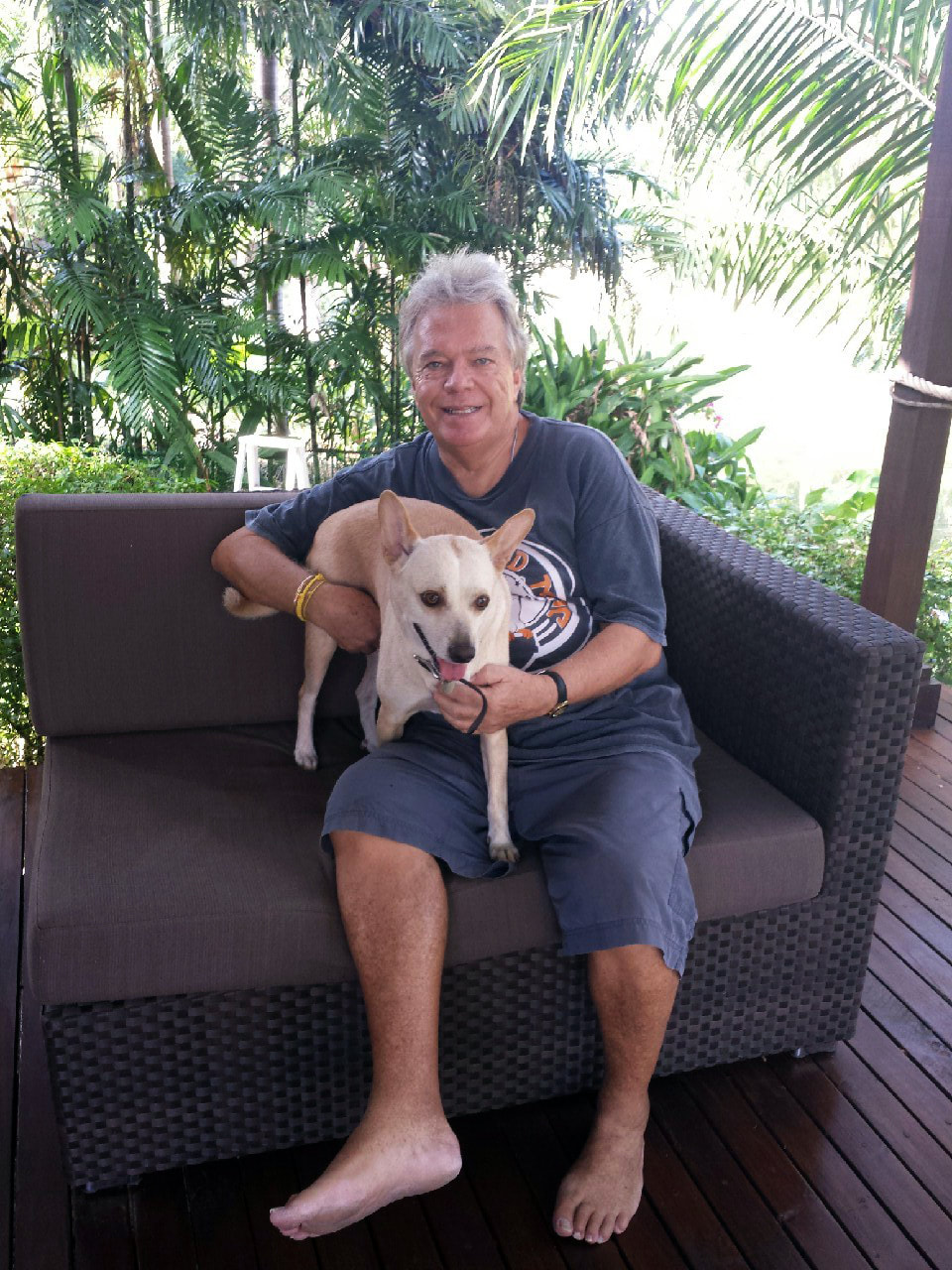
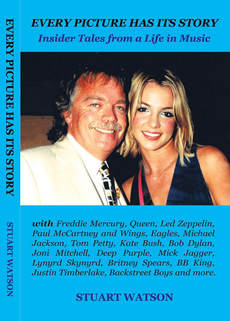
 RSS Feed
RSS Feed
















